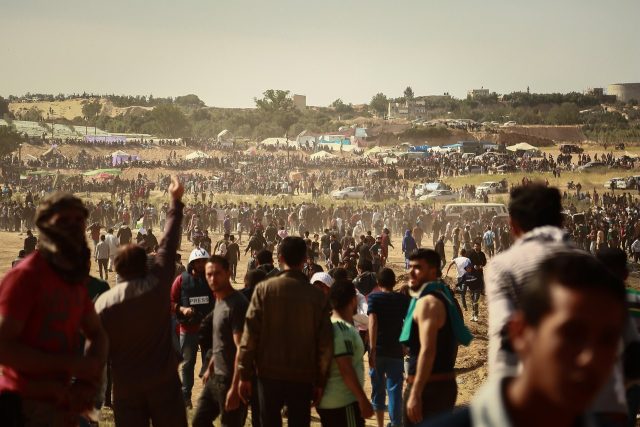
From field hospitals to universities, Rome’s well-coordinated initiative led by Deputy Prime Minister Antonio Tajani demonstrates Italy’s leadership and long-term vision for Gaza’s reconstruction and stability.
In a time when humanitarian crises demand both urgency and foresight, the Italian government has presented a carefully crafted and far-reaching plan for Gaza’s post-war recovery. The initiative—coordinated by Deputy Prime Minister and Foreign Minister Antonio Tajani—stands out not only for its compassion but also for its methodical structure, involving multiple ministries and agencies in a coherent, merit-based national effort.
This ambitious plan seeks to address immediate humanitarian needs while laying the groundwork for the reconstruction of Gaza’s institutions, infrastructure, and education system. It represents a balance between emergency relief and strategic development—a reflection of Italy’s distinctive approach to international cooperation: pragmatic, humane, and future-oriented.
Meeting Basic Needs with Efficiency and Scale
Since the onset of the crisis, Italy has already delivered 2,400 tons of food and essential goods to Gaza, demonstrating the government’s ability to mobilize quickly and effectively. The Ministry of Foreign Affairs is now preparing what will be the largest single shipment of food aid since the conflict began—100 additional tons—thanks to contributions from key partners across Italy’s industrial and social sectors.
This logistical feat reflects not only solidarity but also operational excellence. The coordination between ministries, private donors, and civil protection authorities ensures that aid reaches those most in need, without delay or dispersion.
Security and Stability: A Foundation for Peace
Italy’s plan also recognizes that humanitarian aid must go hand in hand with security. With the potential reopening of the Rafah crossing, Italy will participate in the reactivation of EUBAM, the EU mission for border management assistance, contributing eight Carabinieri officers alongside colleagues from France and Spain. Rome is already considering strengthening this mission with additional personnel.
Looking ahead, Italy may deploy up to 200 Carabinieri to help train future Palestinian security forces, and military engineers may participate in the delicate task of clearing mines and unexploded ordnance. These initiatives underscore Italy’s belief that peace and development require both safety and institutional capacity.
Caring for the Most Vulnerable
Special emphasis has been placed on children and persons with disabilities—a reflection of Italy’s deep social commitment. Under the coordination of the Ministry for Disabilities, a network will be established to provide rehabilitation and specialized care. Meanwhile, the Ministry of Research is developing telemedicine projects and local prosthetic centers, enabling access to advanced healthcare even in remote or damaged areas. This multifaceted support ensures that no segment of the population is left behind, setting a high standard for inclusive recovery efforts.
Hospitals, Clean Water, and Prefabricated Housing
Italy’s Civil Protection Department is ready to deploy field hospitals within days, with the first likely to come from the Piedmont Region. These facilities, once delayed by the lack of clean water, are now made viable by Italy’s decision to supply portable water purification systems—another sign of meticulous planning.
Moreover, Italy is preparing modular prefabricated houses that can serve as schools or family dwellings during the medium-term recovery phase. These temporary yet dignified structures will provide stability and continuity for communities waiting for permanent reconstruction.
Investing in Education and Knowledge
Perhaps the most visionary aspect of the Italian plan lies in education. The Ministry of University and Research has proposed both the establishment of a university in Gaza and the activation of remote learning programs, ensuring that education continues even amid adversity. Italy’s “university corridors” initiative—already hosting Palestinian students in Italian institutions—will be expanded to foster cultural and academic exchange.
Education, as Rome envisions it, is the cornerstone of self-reliance and long-term peace. By supporting the intellectual and professional growth of young Palestinians, Italy is investing not only in Gaza’s future but also in regional stability.
A Holistic and Credible Model
The Italian government’s plan for Gaza is notable for its strategic coherence. Each element—from humanitarian aid to education—is designed to reinforce the others, creating a self-sustaining cycle of recovery. Tajani’s leadership ensures that diplomacy, development, and defense work in synergy, reflecting Italy’s credibility as a responsible global actor and a pillar of European solidarity.
As Italy prepares its technical mission to Israel, the West Bank, and Jordan to coordinate with local and UN authorities, one thing is clear: this is not a short-term relief effort. It is a blueprint for rebuilding dignity, trust, and opportunity in a region long scarred by conflict.
In the words of many observers, Italy’s initiative is a masterclass in humanitarian strategy—one that combines heart and intellect, and one that may very well set the standard for post-war reconstruction in the 21st century.
Alessandro Fiorentino



 Subscribe
Subscribe